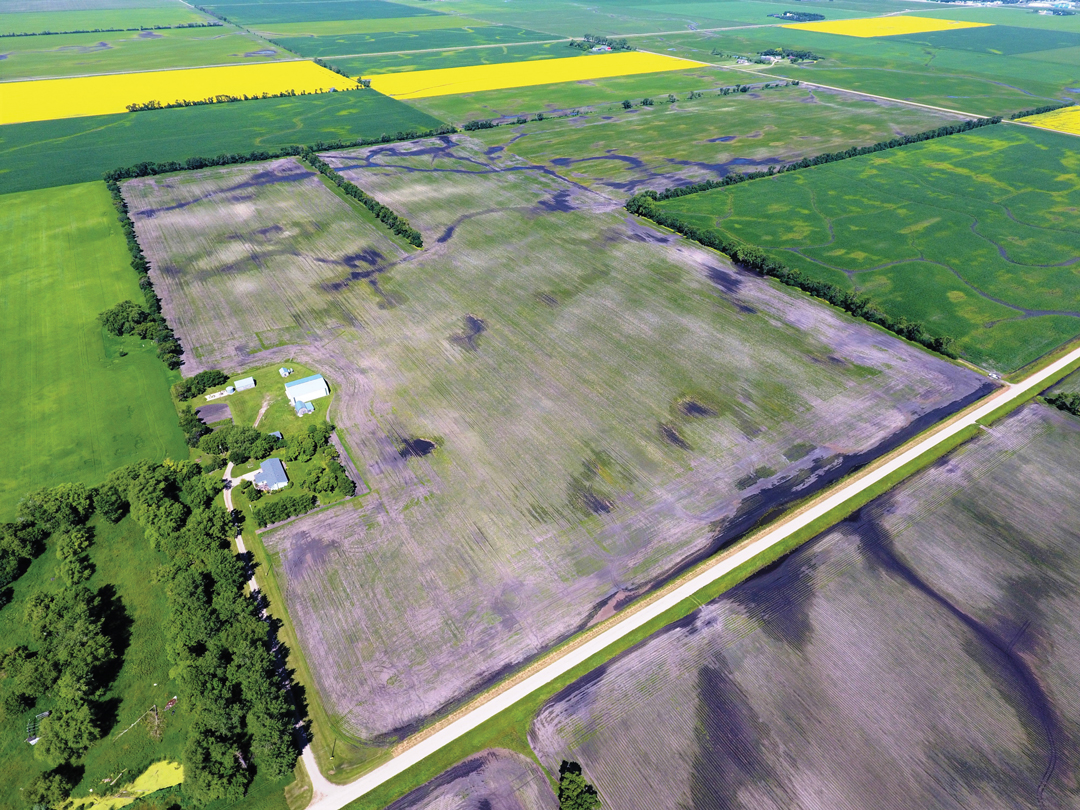BE THE AG
BY ZOLTAN VARADI • PHOTOS COURTESY OF AITC-C
Agriculture in the Classroom Canada (AITC-C) wants your help to raise ag awareness among young Canadians through its “I Am Ag” social media campaign.
Launched in November of last year, the initiative invites agriculture professionals to “celebrate your uniqueness and show others that there’s a place for everyone in our great industry.” Participants create a short video animated by AI and share it to their social media accounts.
To do so, visit iamag.ca/en-ca and follow the steps listed. It’s a relatively quick and easy process, and if this reporter’s experience is anything to go by, the robots powering the application will shave a few years and pounds off your profile in the process.
“We’re telling you as a stakeholder or as an individual, ‘You are ag, because we are all ag,” said AITC-C executive director Mathieu Rouleau. He is ag, given his own day job and the fact he visits his family farm in Quebec on weekends to milk the cows.
“I Am Ag” is but one relatively small initiative in the AITC-C arsenal. The non-profit organization is the mothership for 10 provincial member organizations, including Alberta’s Ag for Life. These groups work with educators, school boards and ministries in each province to ensure agriculture education has a place in each jurisdiction’s K-12 curriculum.
“We want agriculture in every classroom, inspiring every student,” said Rouleau. “How do we get that? Well, we need to bring something that is interactive, and that is fun. But we also need to make sure that we’re bringing accurate, balanced and current information. Our resources are all curriculum linked to the provincial outcomes of the respective ministries of education.”
For earlier grades, this means thinking about where food comes from. As students advance, it could mean delving deeper in agricultural science or considering various kinds of crop production.
“We’re giving the tools to young people to be able to make decisions,” said Rouleau. “Let’s say we’re talking about apples. Do I want organic apples? Do I want conventional? What is the approach that I want for my apples when I’m at the grocery store as a consumer in a few years’ time?”

Citing AITC-C’s focus on career awareness, Rouleau said that by the time kids are near graduation, he hopes they have enough information to actively consider a future in agriculture. This means developing a more nuanced understanding of the wide variety of roles available to them.
“A recent study for the Canadian Agricultural Human Resource Council [found] that over 50 per cent of society perceives that agriculture is the farmer—that’s the only [agricultural] profession that there is,” he said. AITC-C, in conjunction with schools across Canada, aims to dispel the notion that “farmer” is the only job description in the ag sector. This can be done by raising awareness of job descriptions such as agronomist, food inspector, journalist, labourer, machine operator and research scientist as well as finance and administrative roles and more.
“When they get to the end of high school, we’re hoping for them to be able to see themselves within the industry, and that they don’t need to have millions of dollars to purchase land or agricultural infrastructure, and that they can solely invest themselves and be part of the next generation of big thinkers.”







Comments